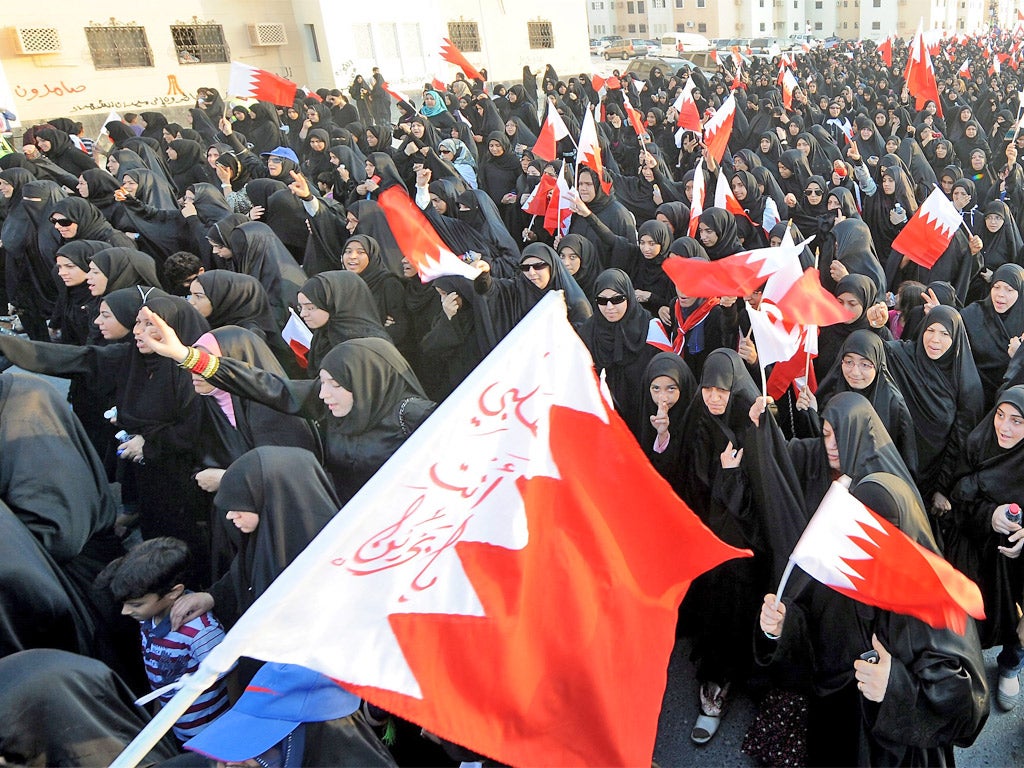Use of torture confirmed by Bahrain commission

The use of torture and the systematic mistreatment of detainees by the authorities have been confirmed by an independent commission set up by the government of Bahrain to look into the violence surrounding the rise and suppression of the Arab Spring movement in the Gulf state earlier this year.
Mahmoud Cherif Bassiouni, the Egyptian-American lawyer who headed the team that carried out the investigation and wrote the 500-page report, said there was no evidence that Iran played any role in the pro-democracy protests by the island kingdom's 70 per cent Shia majority. Iranian involvement has been repeatedly alleged by the Bahraini government and its allies to justify the brutality of its actions.
In the hours before the report's publication yesterday, pro-democracy demonstrators again took to the streets in Manama, the Bahraini capital, and were met with riot police who fired teargas to disperse the protesters.
The study describes how evidence from victims of torture, and forensic examination of their injuries, showed that torture was systematically employed, using a wide range of techniques including electric shocks, whipping on the soles of the feet with cable, beating with rubber hoses, exposure to extreme temperatures and sleep deprivation. Mr Bassiouni confirmed that five detainees had died under torture.
The report was presented with great ceremony in Bahrain in front of Bahrain's king, Hamad bin Isa al-Khalifa, who admitted to "serious shortcomings on the part of some organs of our government, particularly in failing to prevent instances of excessive force and of the mistreatment of persons placed under arrest". One of the purposes of the king commissioning the report appears to be to distance himself and the royal family from the brutal repression of the pro-democracy protesters in March.
But the report does make clear that the identical tactics used by the Bahrain security forces in arresting detainees – such as wearing black masks, destroying property, shouting abuse – is strong evidence that they had all received similar training. The report says "this could not have happened without the knowledge of higher echelons of the command structure" of the security forces.
The Bahrain Independent Commission of Inquiry (Bici) received 559 complaints of torture, all but nine of them from Shia. Some of the most notorious cases involved medical staff from the Salmaniya Medical Complex who alleged that they were tortured and forces to sign confessions – often admitting to being part of a revolutionary conspiracy orchestrated by Iran – which they could not see because they were blindfolded for days on end.
The Bahrain government is seeking to portray the torture and mistreatment as never having been official policy and that it has in any case ceased since 10 June. While regretting the use of torture and the mistreatment of detainees as well as death by torture of five people, the government spokesman said: "those responsible are among 20 officers already being prosecuted".
The report is likely to welcomed but with strong reservations by the Bahraini opposition, who will want to see if those responsible for killing or mistreating protesters are truly going to be punished. In the past, the opposition have complained that royal promises on such issues as sacked Shia workers being allowed to get their jobs back have not been fulfilled.
A further problem facing King Hamad is that the reigning dynasty, the al-Khalifa family, is divided about the degree of repression to be used. In addition, the Shia protests during the early part of the year have left a legacy of deep sectarian suspicion and hatred between Sunni and Shia which is unlikely to dissipate for several years. At the height of repression, the authorities bulldozed Shia mosques and holy places alleging that they did not have the correct building or planning permits.
Subscribe to Independent Premium to bookmark this article
Want to bookmark your favourite articles and stories to read or reference later? Start your Independent Premium subscription today.

Join our commenting forum
Join thought-provoking conversations, follow other Independent readers and see their replies